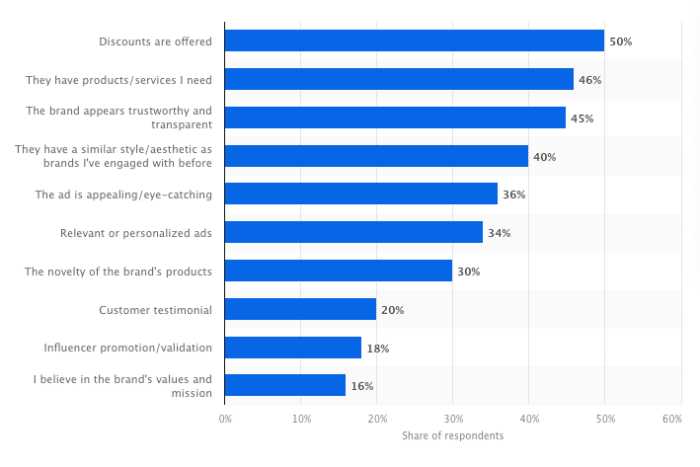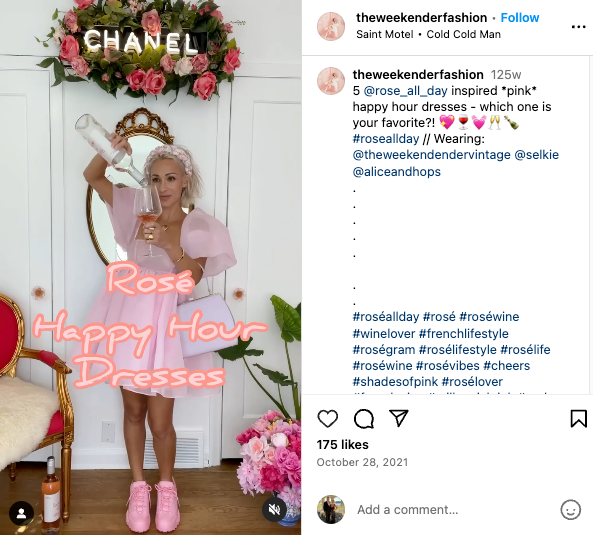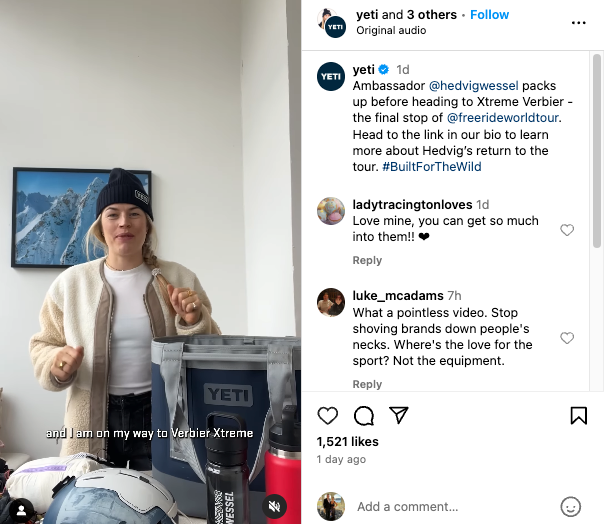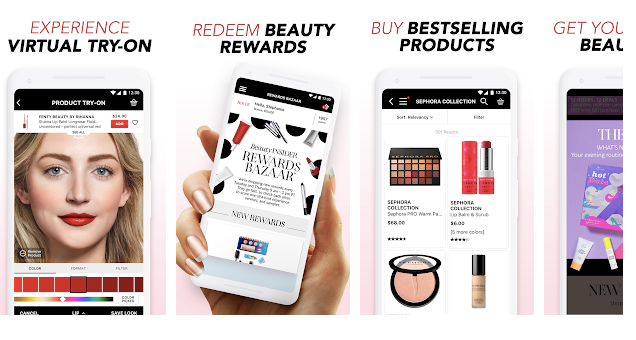
If you’ve been pouring resources into your marketing strategies but still feel like you’re missing the mark, perhaps it’s time to ask: Are our efforts empowering reach to our target audience? This is the question many marketers grapple with as they navigate the dynamic and often elusive landscape of Gen Z consumers.
Why focus on marketing to Gen Z? This generation, born between the mid-1990s and early 2010s, is a powerful and distinct group with an estimated purchasing power of $360 billion in the United States alone. But what truly sets them apart is not their spending capability—it’s their values, behaviors, and the unique way they interact with content and brands online.
In this article, we’re diving deep into Gen Z marketing. I’ll share with you the essential strategies that resonate with this next generation, ensuring your marketing efforts are seen and felt.
Key Takeaways about Gen Z
- Gen Z commands $360 billion in purchasing power, setting them apart with their unique values and digital engagement preferences.
- Success in marketing to Gen Z hinges on authenticity, digital savviness, and alignment with their strong social and environmental values.
- Effective engagement requires leveraging visual and interactive content on platforms where Gen Z spends their time, such as Instagram, TikTok, and Snapchat.
- Strategies that resonate include partnering with micro-influencers, emphasizing social responsibility, and ensuring a seamless omnichannel brand experience.
- Measuring, analyzing, and adapting based on data is essential to keep pace with Gen Z’s evolving preferences and to drive actionable marketing results.
Who are Gen Z’ers? Understanding Gen Z for Marketing Success
To effectively market to Gen Z, it’s crucial to understand who they are beyond the surface-level statistics. This generation brings a unique set of values, behaviors, and interactions with the digital world that defines them. Why does traditional marketing often fall flat with Gen Z? The answer lies in their demand for authenticity, innate digital savvy, and desire for engagement that feels personal and impactful.
In exploring how to market to Gen Z, we must acknowledge that this demographic expects more from brands. They’re not just consumers—they’re participants in a global conversation, advocating for their beliefs and aligning themselves with brands that share their values. And 45 percent of them are more engaged with brands who appear trustworthy and transparent.

Source: Statista
This generation grew up in a digital-first world, making them incredibly adept at navigating online spaces and discerning genuine content from marketing fluff. They don’t want to just be targeted with paid ads—they’re looking for real connection.
From understanding who Gen Zers are to crafting content that speaks directly to them, it’s all about connecting on a level that transcends traditional advertising. Gen Z marketing is truly unique—where authenticity, transparency, and meaningful engagement reign supreme.
Age Isn’t Just a Number: Defining The Generation, Ditching Stereotypes, and What Makes Them Tick.
When we talk about Gen Z, it’s essential to look beyond their age and consider what genuinely characterizes this generation. Let’s bypass stereotypes to truly grasp Gen Z’s complexity by focusing on their values, priorities, and spending habits, revealing the motivations behind their marketing interactions.
Gen Z is profoundly influenced by social, environmental, and political issues, more so than any generation before them. They seek brands that are not just about profit but also about purpose, making a positive impact on the world. Their priorities often include sustainability, inclusivity, and social justice—themes that should be evident in your marketing if you wish to engage with them meaningfully.
This includes the 3 out of 4 Gen Z consumers who care more about sustainability than brand names when making purchasing decisions.
Gen Z’s spending habits reflect their values. They are willing to invest in brands that prove their commitment to these causes, not just through words but through tangible actions and transparent business practices. This generation is savvy—they can spot inauthenticity a mile away. For Gen Z, Authentic engagement means that a brand lives its values, offers transparency in its operations, and communicates honestly with its audience.
As marketers, our challenge and opportunity lie in meeting these expectations, and crafting strategies that resonate deeply with Gen Z’s values and aspirations.
Where to Find These Digital Natives (and Actually Connect with Them)
Knowing where to find Gen Z is the first step to engaging them. This generation lives online, but not just anywhere online—they have their digital hangouts where they feel most at home. Understanding these platforms and why Gen Z gravitates towards them is key to crafting strategies that reach them and resonate with them.
Platforms like Instagram, TikTok, and Snapchat are hotspots for Gen Z engagement. Why these platforms? They offer what Gen Z values most: visual storytelling, the ability to share and connect over authentic experiences, and, importantly, a sense of community. For marketers, this means adapting strategies to fit the fast-paced, visually-driven content that thrives on these platforms. The engagement habits of Gen Z also lean towards interactivity—they want to feel a part of the conversation, not just passive recipients of a message.
Crafting Content that Resonates
Creating content that resonates with Gen Z requires a deep understanding of what they care about and how they like to consume content. This generation is not interested in one-size-fits-all marketing. They seek content that speaks to them personally, reflects their values, and invites them to engage.
Building Trust & Transparency: Establishing a Brand Voice that aligns with Gen Z’s Values.
Trust and transparency are non-negotiable for Gen Z. This generation expects brands to be open about their practices, honest in their communications, and clear about their values. If not, you could earn an unfollow, hide, or block by up to one-third of Gen Z on a weekly basis. Establishing a brand voice that resonates with Gen Z means embracing these principles wholeheartedly.
For brands like Patagonia, authenticity is key. The brand is known for outright philanthropy and doing more with less. So when founder Yvon Chouinard announced he was donating the company (valued at $3 billion) to a trust and non-profit, social media reacted, in a good way.

Source: Instagram
The brand is known for its values-driven approach, so this move came as no surprise to its brand followers, showing just how much authenticity matters.
Value-driven storytelling that showcases your brand’s purpose and commitment to key issues is vital. Gen Z wants to see the impact of their choices, so demonstrate how your brand makes a difference in the world. This authenticity in your messaging is what builds trust and fosters a genuine connection with Gen Z consumers.
Engaging Formats: Utilizing Micro-content, User-generated experiences, and Interactive Elements.
The content formats you choose significantly affect how effectively you engage Gen Z. This generation prefers micro-content—brief, engaging clips that convey messages quickly and effectively. Think of short videos, dynamic infographics, and interactive polls or quizzes. User-generated content is also incredibly powerful, as it leverages peers’ voices to build trust and authenticity. Incorporating these elements into your strategy aligns with Gen Z’s preferences and encourages active participation, making them feel a part of your brand’s story.
Clothing brands teamed up with influencer Jessica Wagner @theweekenderfashion, to showcase their dresses while encompassing the “Rose all day” theme. This theme ties into Gen Z’s love for daytime fun and bottomless brunches, keeping the tone casual, fun and engaging.

Source: Instagram
Beyond Likes: Converting Engagement into Actionable Results
Engagement is critical, but for marketers targeting Gen Z, the ultimate goal is converting that engagement into actionable results—whether that’s sales, brand loyalty, or advocacy. To do this effectively, your strategies need to go beyond superficial likes and shares, creating deeper connections that drive Gen Z to take action.
The Power of Micro-Influencers: Leveraging Authentic Brand Advocates with Genuine Reach.
Micro-influencers are key players in the Gen Z marketing playbook. Unlike their mega-influencer counterparts, micro-influencers boast smaller, but highly engaged, audiences. They’re seen as more authentic, relatable, and trustworthy—qualities Gen Z values highly. Their brand endorsement feels more like a recommendation from a friend rather than a celebrity endorsement.
Yeti knows its products are awesome, and wants other people to know it too. They regularly use micro influencers like the video below with Hedvig Wessel to showcase their products and why they’re so loved.

Source: Instagram
For marketers, micro-influencers’ value lies in their ability to generate genuine engagement and influence within their niche communities. Partnering with the right micro-influencers allows brands to tap into specific segments of the Gen Z market with tailored messages that resonate deeply. The key is to find micro-influencers whose values align with your brand’s, ensuring a natural and authentic partnership that speaks directly to Gen Z’s desire for genuine connections.
Integrating Social Responsibility: Demonstrating Your Brand’s Positive Impact on The World.
Social responsibility isn’t just a buzzword for Gen Z—it’s a criterion for their support and loyalty to a brand. This generation looks to align with brands that actively contribute to the betterment of society and the environment. Demonstrating your brand’s commitment to social responsibility is all about consistent, authentic actions that show a real commitment to change.
For example, Coca-Cola has recently placed much of their efforts around sustainability, with a message of “a world without waste”—aiming to reduce their carbon footprint by 25 percent by 2030.

Source: Coca-Cola
From their bottles to their ads, it’s clear the company is aiming to focus on social responsibility.
Brands can take note of the example above to effectively communicate their social responsibility initiatives through storytelling highlighting their efforts and impacts. Whether it’s sustainable practices, supporting social causes, or community involvement, these stories should be front and center in your marketing content. Showcasing real stories of impact aligns with Gen Z’s values and encourages them to support and advocate for your brand as a force for good.
Seamless Omnichannel Experience: Creating a Cohesive Journey Across All Touchpoints
Omnichannel marketing is about providing a seamless experience, regardless of channel or device. A cohesive brand journey is essential for Gen Z, who move fluidly between online and offline worlds. This means integrating your marketing efforts across all platforms—social media, email, mobile apps, and in-store experiences—so that Gen Z consumers encounter a consistent brand message wherever they are.
Take Target’s innovative partnership with Pinterest, for example. By integrating Pinterest’s Lens feature into their app, Target allowed customers to snap a photo of any item they liked and then see similar products available in Target’s inventory.

Source: Target
This seamless blend of social inspiration and immediate shopping capability offers a prime example of omnichannel marketing and significantly boosted Target’s sales by nearly 10%.
Similarly, Sephora stands out for its exceptional omnichannel approach. The beauty retailer harmonizes its online and in-store experiences by offering consistent beauty advice, free makeovers, and product trials across both platforms.

Source: Sephora
Their Beauty Bag account feature allows customers to track purchases, scan items in-store for more information, view tutorials, and manage wish lists. This integration of digital and physical shopping experiences contributed to a staggering 100% increase in mobile orders, showcasing the profound impact a well-executed omnichannel strategy can have.
For Gen Z, the power of an omnichannel approach lies in its ability to engage them where they are, in a manner that feels personal and tailored. By creating a cohesive brand journey across every conceivable touchpoint, you not only elevate the customer experience but also boost engagement, build loyalty, and drive action. In a world where Gen Z moves fluidly between the digital and the tangible, being omnipresent and consistent is key to winning their hearts and their business.
Data Data Data: Measuring Your Marketing Success is Crucial
Tracking and analyzing your marketing efforts is essential, especially when targeting Gen Z. Data provides the insights necessary to understand what’s working, and what isn’t, and how to pivot your strategies for better engagement and conversion rates. Understanding Gen Z’s behavior, preferences, and feedback through your marketing channels allows you to fine-tune your approach, ensuring it resonates with this critical audience.
To effectively capture and engage Gen Z, focus on these key data points:
- Social Media Engagement Metrics: Track likes, shares, comments, and overall engagement to understand what resonates.
- Influencer Campaign Conversion Rates: Monitor the performance of influencer partnerships to gauge their impact on your target audience.
- Content Types: Identify which forms of content (e.g., videos, images, articles) generate the most interaction among Gen Z.
- Active Platforms: Determine where Gen Z spends most of their time and tailor your efforts to these spaces for maximum reach.
- Message Resonance: Analyze which messages and themes elicit the strongest responses to refine your brand’s voice.
- Feedback and Adjustment Loop: Use continuous feedback from the above metrics to make real-time adjustments, ensuring your strategies align with Gen Z’s evolving preferences.
FAQs
What platforms are most effective for reaching Gen Z?
The most effective platforms for reaching Gen Z are Instagram, TikTok, and Snapchat. These platforms cater to Gen Z’s preference for visual, engaging, and authentic content. Remember, it’s not just about being present on these platforms but about how you engage with the audience through relevant and creative content.
How does Gen Z prefer to engage with brands?
Gen Z prefers to engage with authentic, transparent, and socially responsible brands. They value interactive content, such as polls, quizzes, and challenges, and appreciate when brands listen to their feedback and involve them in the conversation.
How important is diversity and representation in marketing to Gen Z?
Incredibly important. Gen Z values diversity and representation and expects to see it reflected in the brands they support. Brands that showcase a wide range of voices, faces, and stories are more likely to resonate with this generation.
How can we adapt our marketing strategies to keep up with rapidly changing trends?
Stay flexible, listen to your audience, and be willing to pivot. Keep a close eye on emerging trends within Gen Z communities, engage with them to understand their evolving interests, and use data-driven insights to adapt your strategies in real time.
{
“@context”: “https://schema.org”,
“@type”: “FAQPage”,
“mainEntity”: [
{
“@type”: “Question”,
“name”: “What platforms are most effective for reaching Gen Z?”,
“acceptedAnswer”: {
“@type”: “Answer”,
“text”: “
The most effective platforms for reaching Gen Z are Instagram, TikTok, and Snapchat. These platforms cater to Gen Z’s preference for visual, engaging, and authentic content. Remember, it’s not just about being present on these platforms but about how you engage with the audience through relevant and creative content.
”
}
}
, {
“@type”: “Question”,
“name”: “How does Gen Z prefer to engage with brands?”,
“acceptedAnswer”: {
“@type”: “Answer”,
“text”: “
Gen Z prefers to engage with authentic, transparent, and socially responsible brands. They value interactive content, such as polls, quizzes, and challenges, and appreciate when brands listen to their feedback and involve them in the conversation.
”
}
}
, {
“@type”: “Question”,
“name”: “How important is diversity and representation in marketing to Gen Z?”,
“acceptedAnswer”: {
“@type”: “Answer”,
“text”: “
Incredibly important. Gen Z values diversity and representation and expects to see it reflected in the brands they support. Brands that showcase a wide range of voices, faces, and stories are more likely to resonate with this generation.
”
}
}
, {
“@type”: “Question”,
“name”: “How can we adapt our marketing strategies to keep up with rapidly changing trends?”,
“acceptedAnswer”: {
“@type”: “Answer”,
“text”: “
Stay flexible, listen to your audience, and be willing to pivot. Keep a close eye on emerging trends within Gen Z communities, engage with them to understand their evolving interests, and use data-driven insights to adapt your strategies in real time.
”
}
}
]
}
Winning Over Gen Z: The Future is Now
Mastering the art of digital marketing to Gen Z is not just about catching their attention with engaging social content—it’s about earning their trust and loyalty. This generation holds the keys to the future, not only as consumers but as advocates for change.
By understanding their values, speaking their language, and demonstrating your commitment to making a positive impact, you can win over Gen Z with long-lasting engagement. Remember, this is a continuous journey of learning and adaptation. The brands that succeed will be those that are genuine in their efforts to connect and are committed to evolving alongside their Gen Z audience.

